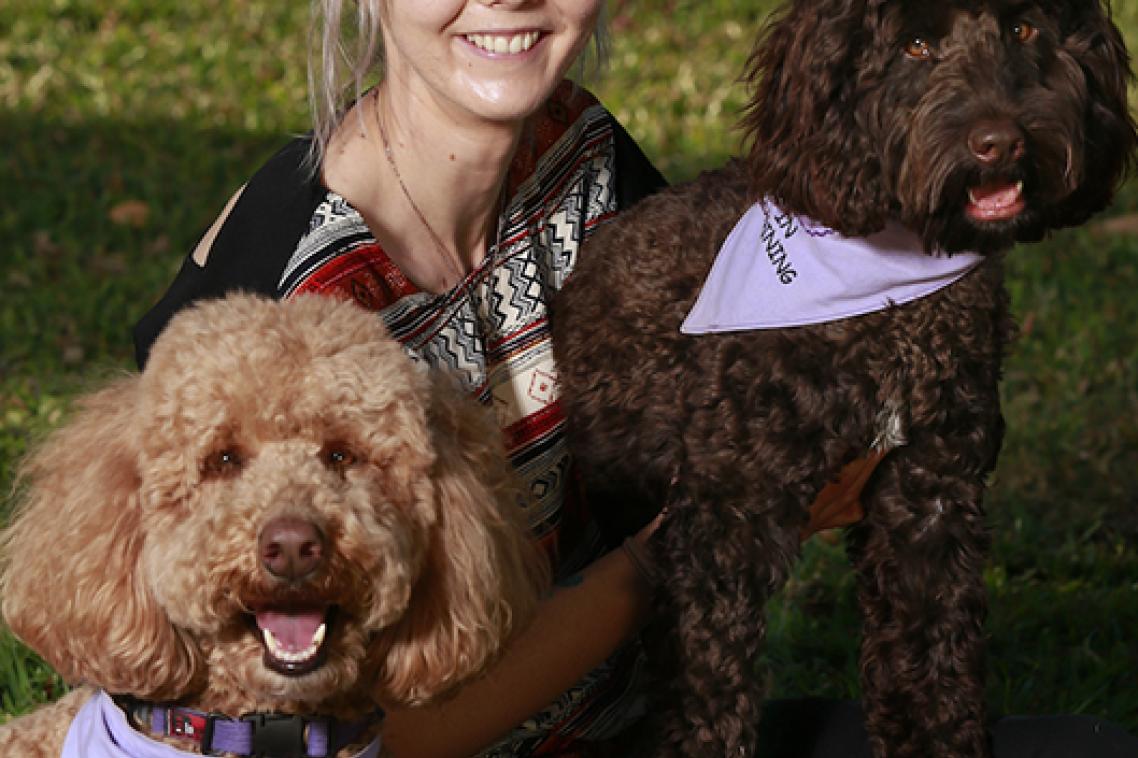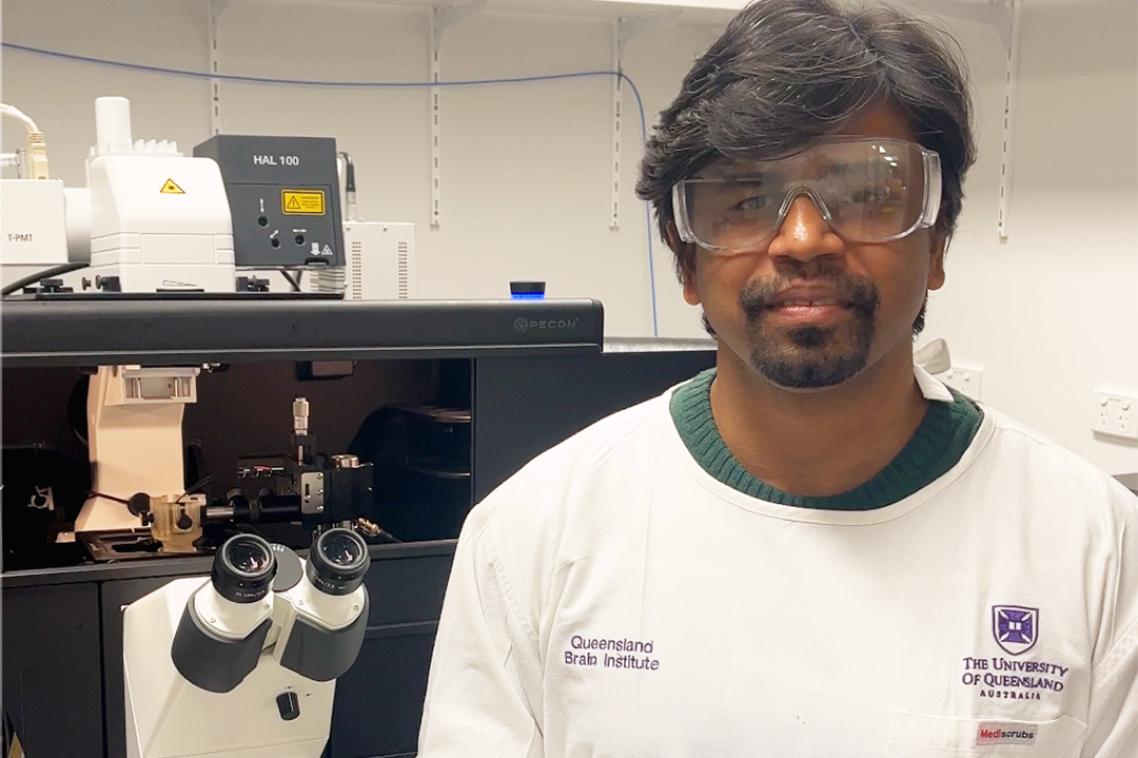Elsa the dog teaches new tricks to occupational therapy students

Students at The University of Queensland are gaining hands on experience in animal-assisted therapy with the help of Elsa the therapy dog.
Elsa’s handler, Dr Jessica Hill from UQ’s School of Health and Rehabilitation Sciences, is behind an Australian-first pilot program where students use animal-assisted occupational therapy to support children develop daily life skills.
“During sessions I am there as Elsa’s handler, as students work with her to help children develop skills such as managing emotions, developing a morning routine and play skills,” Dr Hill said.
“Whether it’s teaching them to share toys or demonstrating how she controls her emotions by calming herself after jumping and playing, Elsa helps the children navigate and engage in their tasks.
“Animal-assisted therapy is still an emerging field with the literature and current research telling us it requires appropriate training to be delivered safely, ethically and effectively.
“That’s why the pilot program was developed – to provide students with this important experience within their undergraduate degree.”
Increased media attention, as well as the introduction of the National Disability Insurance Scheme has led to a growing interest in animal-assisted therapy.
UQ has started to include animal-assisted services in the curriculum, but additional learning opportunities are needed to assist the students to translate knowledge into practice.
“The opportunity to work with Elsa broadens the skillsets of students and strengthens their ability to innovatively use techniques,” Dr Hill said.
“Having Elsa in the room also helps to build rapport between a child and therapist and increases engagement within the session.
“Every child and session is different so students develop their skills in real-time and facilitate goal-focussed outcomes for children and their families.”
Media: Dr Jessica Hill, jessica.hill@uq.edu.au; UQ Communications, Bridget Druery, b.druery@uq.edu.au, +61 (0)7 3366 3037.
Topics
Related articles

New ultrasound imaging to map drug delivery into the brain

Staying physically active cuts risk of early death by 40 per cent
Media contact
UQ Communications
communications@uq.edu.au
+61 429 056 139

